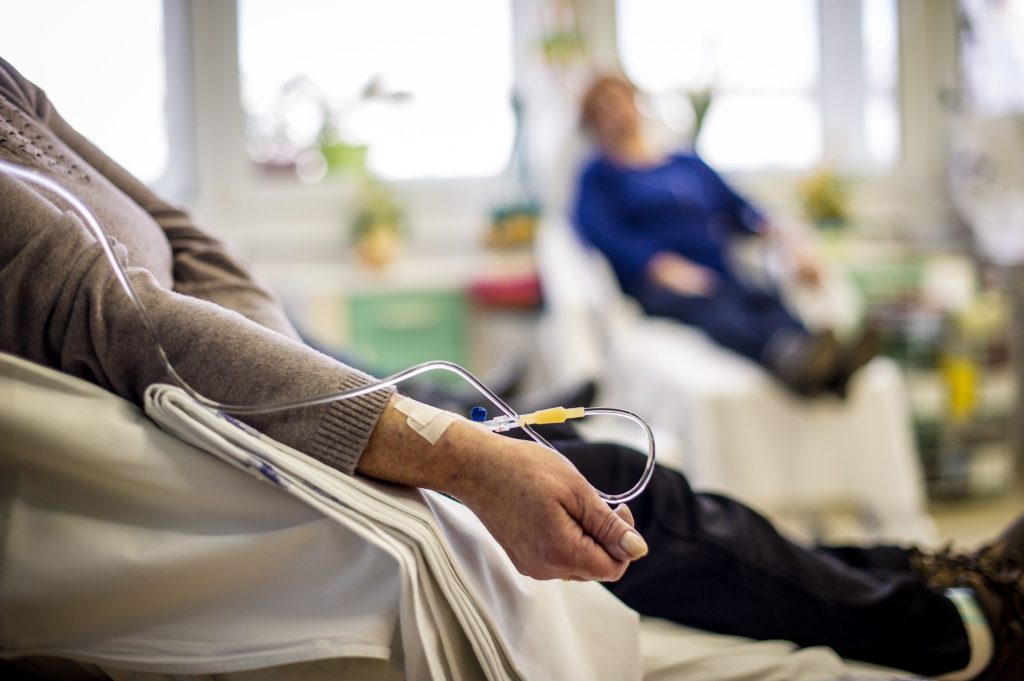
Diagnosed with Cancer? Your two greatest challenges are understanding cancer and understanding possible side effects from chemo and radiation. Knowledge is Power!
Learn about conventional, complementary, and integrative therapies.
Dealing with treatment side effects? Learn about evidence-based therapies to alleviate your symptoms.
Click the orange button to the right to learn more.
- You are here:
- Home »
- Blog »
- side effects ID and prevention »
- Cancer Survivor? Side Effects will Kill You-
Cancer Survivor? Side Effects will Kill You-

“A clear and unambiguous relation exists between therapeutic exposures and specific adverse events experienced by the survivors…”
Why is the study linked below only studying surviving your cancer compared to your heart health? I understand that chemotherapy-induced heart damage is a serious long-term problem for cancer survivors. But what about all the other documented long-term and late stage side effects of aggressive toxicity such as:
- Heart Damage
- Nerve Damage
- Endocrine symptoms Damage
- Brain Damage
- Osteonecrosis
- Secondary Cancers
- Lung Conditions
My guess is that the study was examining cancer versus death caused by cancer therapy. However, a treatment-related cancer certainly kills. While cancer survivors may not die specifically from their nerve damage (CIPN, RILN, etc.) they can die from spending decades in a wheelchair. And any Multiple Myeloma survivor can tell you that you can die from health issues sustained from weakened bones after a fall.
The point of this post is not to rail on conventional oncologic therapies. The point of this post is to highlight the serious damage done by chemotherapy and radiation and then discuss evidence-based, non-toxic healing therapies.
The list of side effects below is my combination of cancer survival since my active treatment in ’94, ’95 ,’96, Each blog post lists those therapies that I have researched along with my personal experience.
- Short-Term Side Effects-
- Chemotherapy-induced Aging-
- Chronic Non-Cancer Pain
- Risk of Treatment-related Secondary Cancer
- Corticosteroid-induced Avascular Necrosis
- Chemotherapy-induced cognitive dysfunction-Chemobrain
- Chemotherapy & Radiation-induced Nerve damage-CIPN and RILP
- Chemotherapy-induced cardiomyopathy-heart damage
- Chemotherapy-induced Hypertension-
- Chemotherapy-induced Atrial Fibrillation- Afib
- Chemotherapy-induced Heart Valve Damage-
- Chemotherapy-induced Deep Vein Thrombosis- Blood clots-
- Chemotherapy-Induced Hemorrhagic Cystitis-irratible bladder
- Radiation-induced Dysphagia–Difficulty Swallowing
- Radiation-induced Xerostomia-Dry Mouth
- Cancer Survivor Mental Health-
If you’ve reached remission from your cancer, great. My experience is that the cancer survivor in remission must then focus on managing short, long-term and late stage side effects. Check-ups interspersed with nutrition, exercise, detoxification, maybe some Acupuncture, sauna, more exercise, etc. etc.
Are you a cancer survivor? Scroll down the page post a comment or question and I will get back to you ASAP.
Thank you,
David Emerson
- Cancer Survivor
- Cancer Coach
- Director PeopleBeatingCancer
Recommended Reading:
PeopleBeatingCancer Side Effects Program
New cancer diagnosis associated with risk for fatal, nonfatal cardiovascular events
New cancer diagnosis appeared associated with increased risk for cardiovascular death, as well as incident heart failure, stroke or pulmonary embolism, according to a retrospective cohort study published in JACC: CardioOncology.
“This risk persisted to at least 7 years from cancer diagnosis and appeared most pronounced in patients with hematologic, gastrointestinal, genitourinary and thoracic malignancies,”
Background and methodology
Paterson and colleagues pursued the research because, despite the knowledge that patients with cancer and cancer survivors are at increased risk for heart failure, previous data conflicted regarding long-term risk for other cardiovascular events, as well as risk according to cancer site.
“Population studies to date have largely evaluated the risk [for] cardiovascular disease — and usually only heart failure — in patients with breast cancer,” Paterson said. “We performed a comprehensive analysis of the risk [for] incident cardiovascular disease in patients with a new cancer diagnosis of any type.”
Paterson and colleagues used time-to-event survival models, after adjusting for comorbidities and sociodemographic factors, to compare the two cohorts with respect to risk for subsequent cardiovascular events, which included
- cardiovascular mortality,
- myocardial infarction,
- stroke,
- heart failure and
- pulmonary embolism.
Determining the impact of new cancer diagnosis on risk for fatal and nonfatal cardiovascular events served as the primary outcome…
The analysis included 4,519,243 adults who resided in Alberta, Canada, from April 2007 to December 2018.
Key findings
At median follow-up of 11.8 years, results showed 73,360 cardiovascular deaths and 470,481 nonfatal cardiovascular events. After adjustment, researchers reported participants with cancer demonstrated the following HRs compared with participants without cancer:
- 1.33 for cardiovascular mortality;
- 1.01 for myocardial infarction;
- 1.44 (95% CI, 1.41-1.47) for stroke;
- 1.62 for heart failure; and
- 3.43 for pulmonary embolism…
Long-term Complications of Therapeutic Exposures in Childhood: Lessons Learned From Childhood Cancer Survivors
“More than 12 000 children and adolescents are diagnosed with cancer each year in the United States.1Advancements in therapeutic and supportive care strategies have resulted in significant improvements in survival; the overall 5-year survival rate is approaching 80%.1 However, two-thirds of these survivors experience at least one chronic health condition,2 resulting in considerable morbidity and premature mortality among childhood cancer survivors.3 A clear and unambiguous relation exists between therapeutic exposures and specific adverse events experienced by the survivors…

